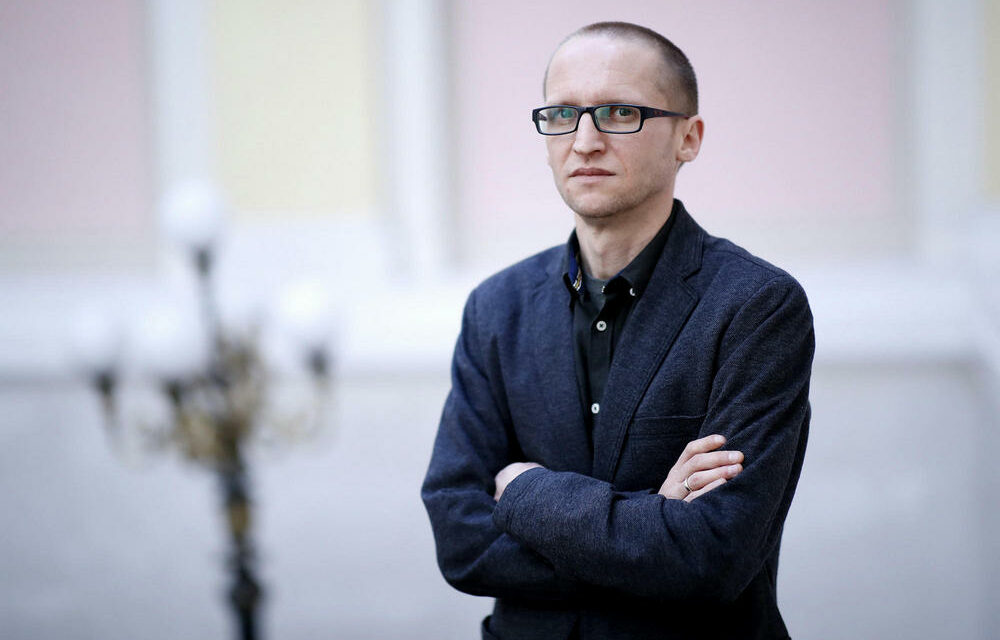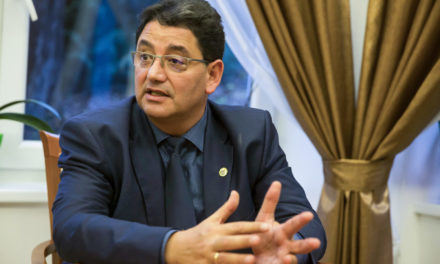The Petőfi Literary Museum (PIM) is forced to constantly redesign due to the skyrocketing overhead costs, but the PIM does not plan to close and the Petőfi 200 commemorative year also commemorates the bicentenary of the poet's birth with a number of programs, said the director general of the institution in an interview with Hirado.hu .
Demeter Szilárd highlighted: The series of events aims to present Petőfi and his time. In addition, the Károlyi Palace, which houses the PIM, will be renovated, and its courtyard will be connected to the Károlyi Garden, thus creating a passage from the Hungarian National Museum to the University Square. In addition, PIM is building a new permanent Petőfi exhibition, which will open on Petőfi's birthday, at midnight on New Year's Eve.
According to the director-general, Petőfi 200 primarily organizes and supports programs that relate to the reform era as a whole, since it was then that modern Hungarian culture was born.
For example, a new science popularization series is being launched in cooperation with the Eötvös Loránd Research Network. Osiris Publishing House republished all of Petőfi's works, the poet's monograph and a Petőfi life journey in numbers.
In the Hungarian Genius program, the exhibitions of more than half a hundred museums have been renewed, and a traveling exhibition shows the most outstanding works that have been brought together by different museums.
On September 1st, the Petőfi tour bus started, but the memorial houses and memorial sites of classic literary greats, including Petőfi, are also being renovated. In addition to the public cultural programs, a "reform age package" was created with the offers of larger cultural institutions and public collections, and school communities could apply for a multi-day visit.
But there will be a light music competition, contests, a guerrilla campaign, a Petőfi calendar, Attila Futaki will draw a comic book from the Apostle, and a musical will also be produced - listed the general director.
As he added, the funds were available in the National Cultural Fund thanks to the government, but due to the "flying overhead and material prices" re-planning is often necessary.
"We can overcome many difficulties, because Hungarian museology has been able to put together good exhibitions in recent decades. We have now had a few rare years of peace, which is not very common in the one hundred and fifty year history of Hungarian museology, it should have enough buoyancy for the crisis years," he said.
Szilárd Demeter reminded that next year, the bicentenary of the birth of not only Petőfi, but also Imre Madách and the National Anthem will be celebrated, and in 2023, the Hungarian National Guard, which was founded as a result of the 1848 revolution and freedom struggle, will be one hundred and seventy-five years old.
The Petőfi 200 commemorative year also emphatically appeals to children, who will be able to choose heroes from Hungarian history for themselves, he noted.
Turning to the economic difficulties, the general director said that according to their plans, PIM can undertake "meaningful opening hours", i.e. the exhibition halls will be open when there is real interest.
However, he emphasized that the crisis also has great opportunities, for example for book culture : "with a little exaggeration, reading does not require heating or electricity. The book is a complex information-carrying tool that has survived for centuries. Of course, there will be losers because people will be willing to spend less money on books, and they will spend it on works that talk about them or provide support in difficult times. I hope that literature will become more alive," he explained.
As he added, the crisis can also offer an opportunity to rethink the cultural institutional system:
"there are too many stone theaters, independent theaters, philharmonic orchestras"
he thought.
According to the Director General
the cultural institutional system in Hungary is "unsustainable and overgrown" and must be rationalized in every possible way: it is necessary to look at what is worth devoting public money to and what should operate on a market basis.
"Hungarian culture will be crisis-proof if the participants work in an alliance, even if they know that they have to give up institutional advocacy in a self-limiting way. It is not certain that a network of cultural institutions must be maintained in every settlement. Culture is not about having a specific building. We should not think in terms of institutions, but in terms of services. And let's not start from the institutional system, but from the recipient. An old reflex will have to be dismantled here, which will involve a lot of conflicts, obviously the political and cultural government will have to carry it through."
Demeter Szilárd said in an interview on Hirado.hu.
MTI / Hungarian Newspaper
Photo: Tibor Illyés/MTI












